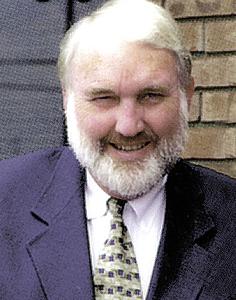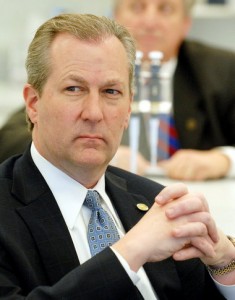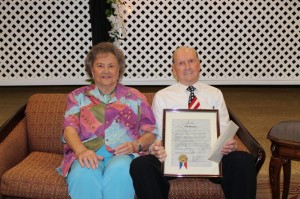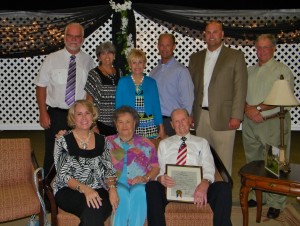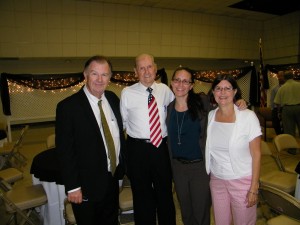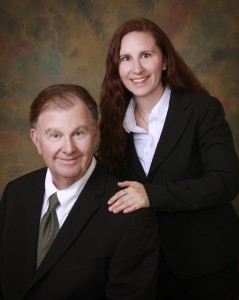By Mitch Reid, al.com, on August 19, 2013 at 8:15 AM, updated August 19, 2013 at 8:16 AM
The Roman orator Quintilian once said, “Whilst we deliberate how to begin a thing, it grows too late to begin it.”
A recent decision by the state of Florida to escalate the water war over Georgia’s use of water for Atlanta should ring as an alarm to the people of Alabama that time is running out for us to protect our water resources. While Florida moves ahead with action to enforce its water plan and protect its natural resources, Alabama is scrambling to put such a plan together.
Alabama is the only state in the tri-state water conflict that does not have a comprehensive water management plan, leaving us in the weakest position for negotiating the water needs of people, businesses, communities, and ecosystems. A look at the history of Supreme Court decisions dealing with interstate water conflicts shows that, when the court decides who gets the water, they tip the scales in favor of the states with the best plan for protecting and using the limited resource. If we delay much longer we will surely be left with whatever our neighbors can’t use.
A comprehensive water plan is crucial for the protection of Alabama’s water resources. Alabama shares most of our water with our neighboring states, so the future of Alabama’s water resources depends not only on making sure that water uses within our borders are fair and balanced against protecting the system future generations but also on balancing our water needs with our neighboring states’ needs as well. To do this, Alabama must implement a meaningful management plan geared to the long-term sustainability of our water resources. To safeguard our fair share of the water, our plan must ensure that we are as efficient as possible in our water use, that we account for and balance the competing needs of water users across the state, and that we have protections in place to ensure that our rivers and bay ecosystems have the water they need to sustain the system. Only then can we demonstrate that our neighbors are taking more than they deserve.
Alabama has had fair warning that this crisis was headed our way. In 1990, Governor Guy Hunt created the Alabama Water Resources Study Commission to study water shortages in the ‘80s. The Commission found that every day that the state delayed in developing a plan brought us one day closer to the worst case scenarios.
In 2008, the Legislature created the Permanent Joint Legislative Committee for Water Policy and Management to study the issue and to develop policy. Finally, in April of 2012, Gov. Robert Bentley created the Alabama Water Agencies Working Group and directed them to study the issue and provide him with a recommendation for a Comprehensive Statewide Water Management Plan by December 1st of this year. While some have suggested that the AWAWG hold off on providing recommendations for a plan and are suggesting, instead, that the AWAWG develop issue papers and study groups, Florida’s action in the Supreme Court suggests that the time for study groups has passed. The AWAWG must meet this challenge of our time and provide the Governor with a recommendation for a solid, implementable water management plan this year and our elected officials should be standing by to take up these recommendations as soon as they are presented to the Legislature.
While the recent water headlines focus on the water war with Georgia, last year our farmers were reeling from the second year of devastating drought. These situations are occurring more frequently and their effects on our water resources, environment, and economy are becoming more severe.
Everyone in the state has an interest in protecting our water resources and making sure that there is a system to ensure that everyone gets the water they need. Our current system does not do this. Alabama currently only protects those who happen to live higher up on the river or with the biggest pump in the ground. Whether you are looking to invest in irrigation for your farm or want to bring a business to your town, you must have a predictable and secure source of water. That is not possible under Alabama’s current system.
Thankfully, Bentley has taken action through his directive to the AWAWG and the Legislature stepped up with $1 million in funding for an assessment of our state’s water resources. This commitment, along with leveraging funds available for studying and protecting the fresh water needs for Mobile Bay and our Gulf Coast, will establish the scientific groundwork for a water plan. Now we must finish the job. Alabama must put the necessary laws and policies in place so that we can use this science to defend against Georgia’s water grab and protect our water resources here at home.
The stakes cannot be higher: Water, our most precious natural resource, upon which our economy, our environment, even our very existence depends, hangs in the balance. We manage our budgets, our offices, and our households; it’s passed time we managed our water.
Mitch Reid is program director for the Alabama Rivers Alliance. The mission of the Alabama Rivers Alliance is to protect and restore Alabama’s rivers.
http://www.al.com/opinion/index.ssf/2013/08/alabama_needs_a_comprehensive.html
